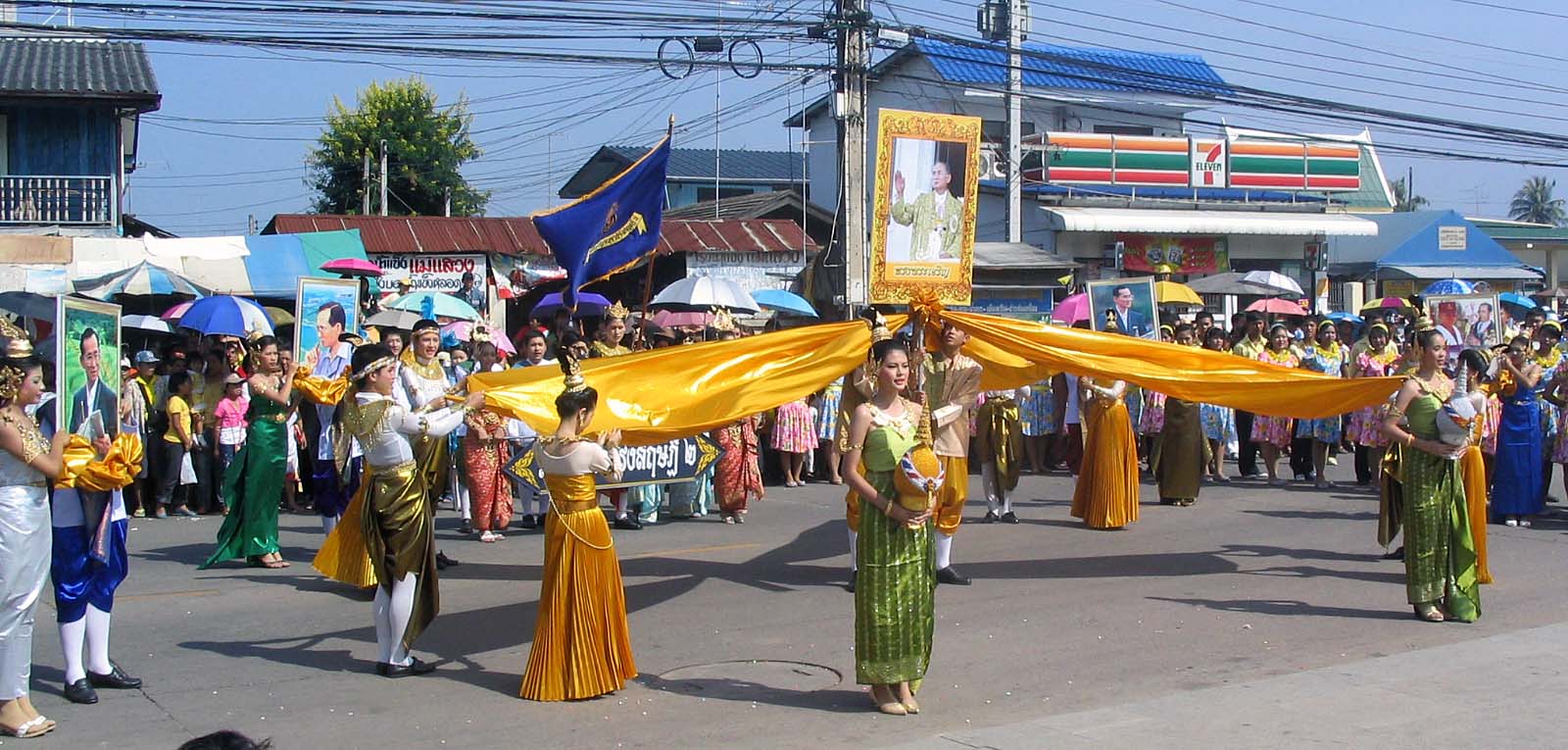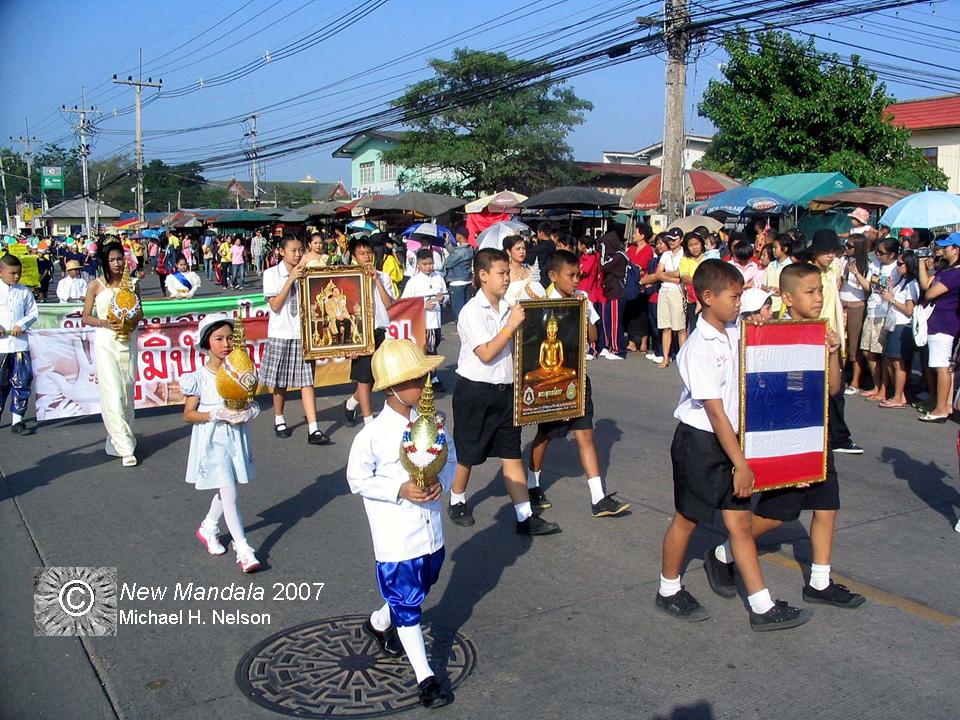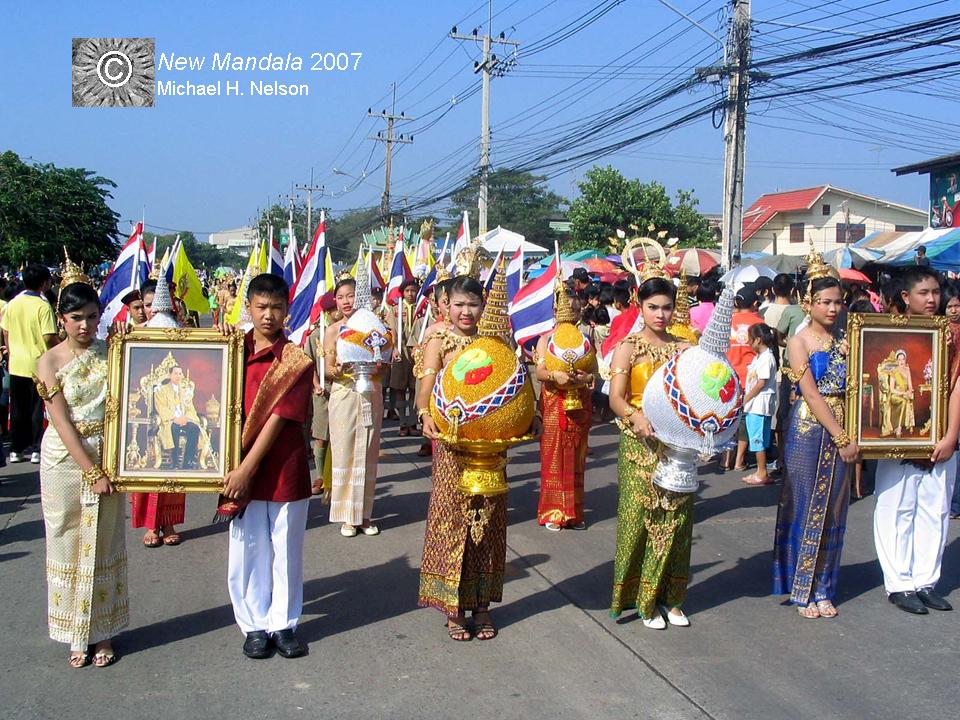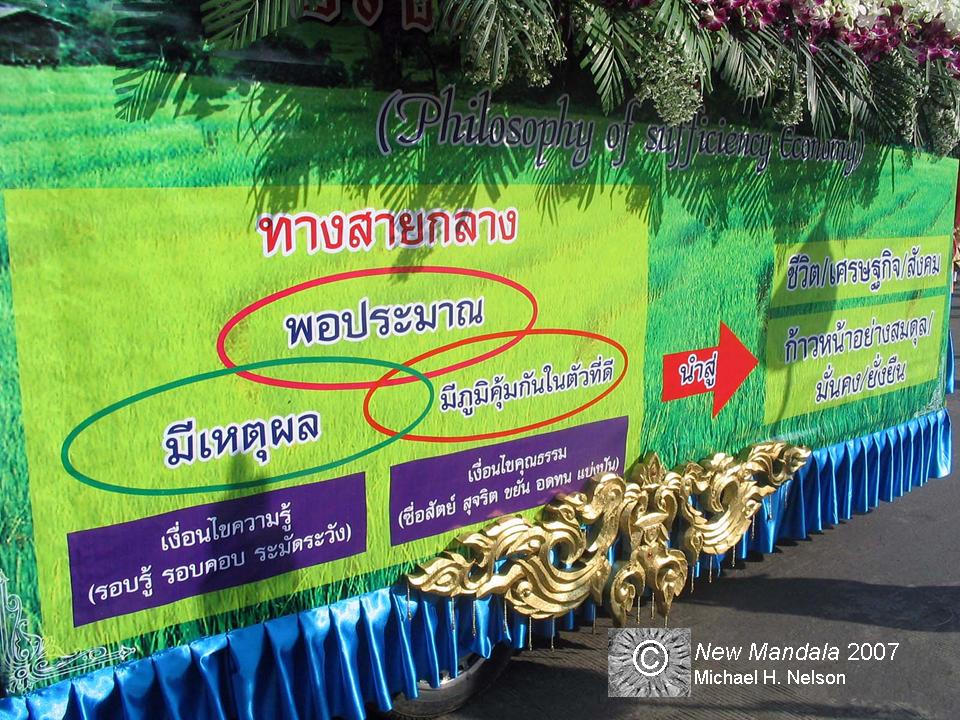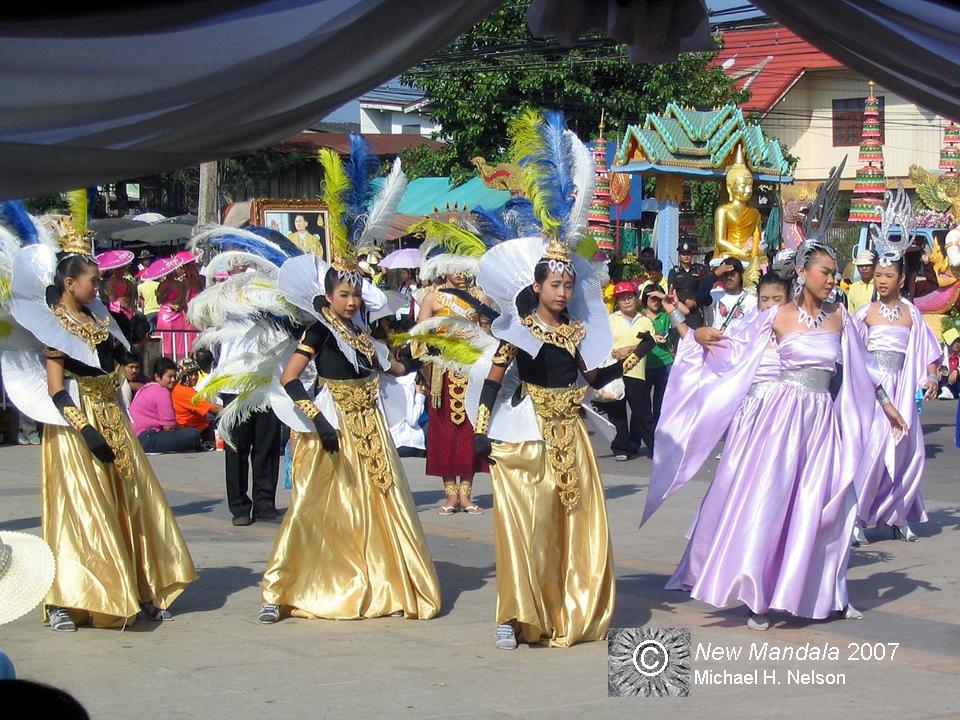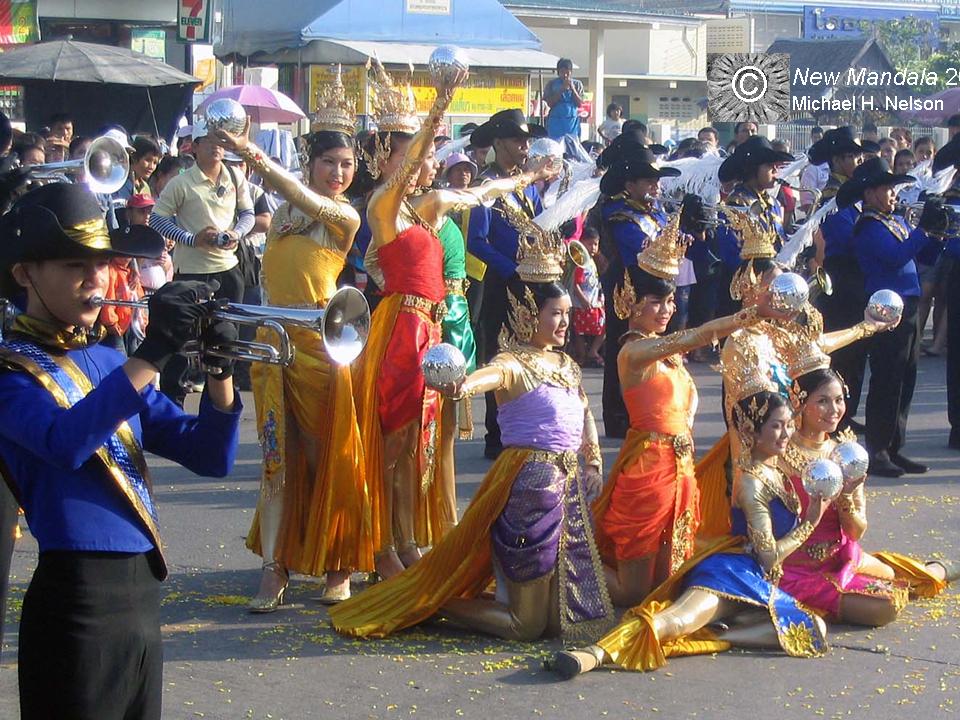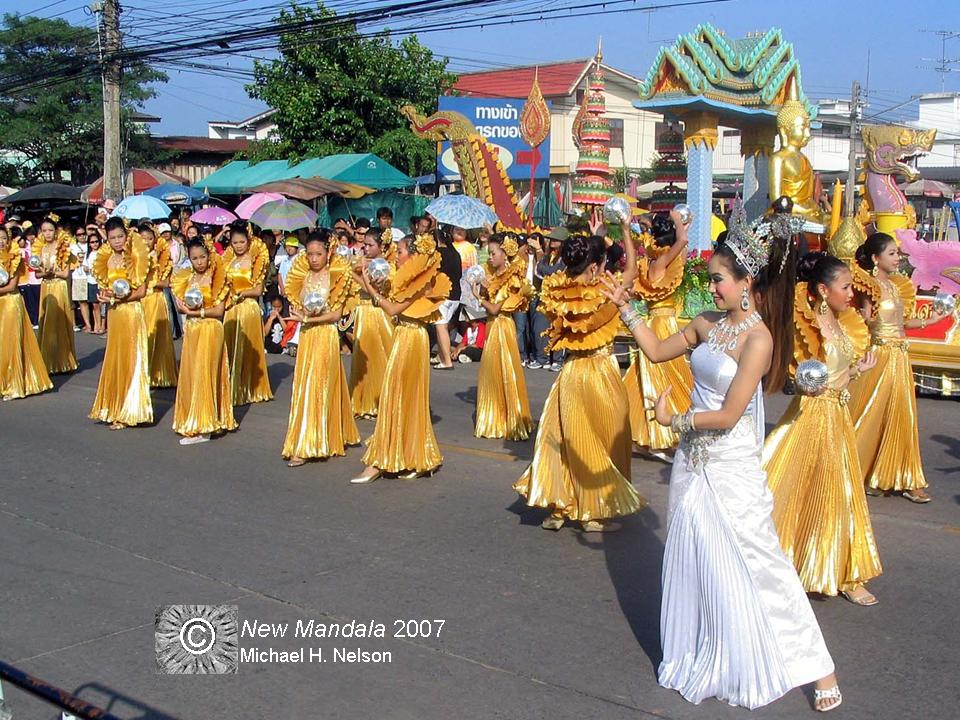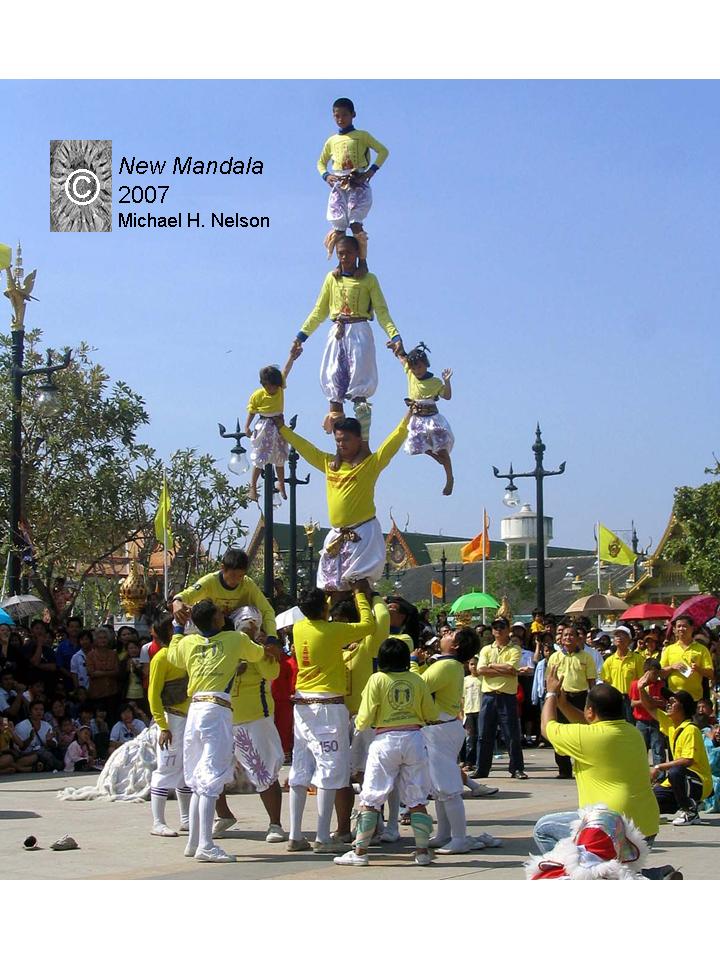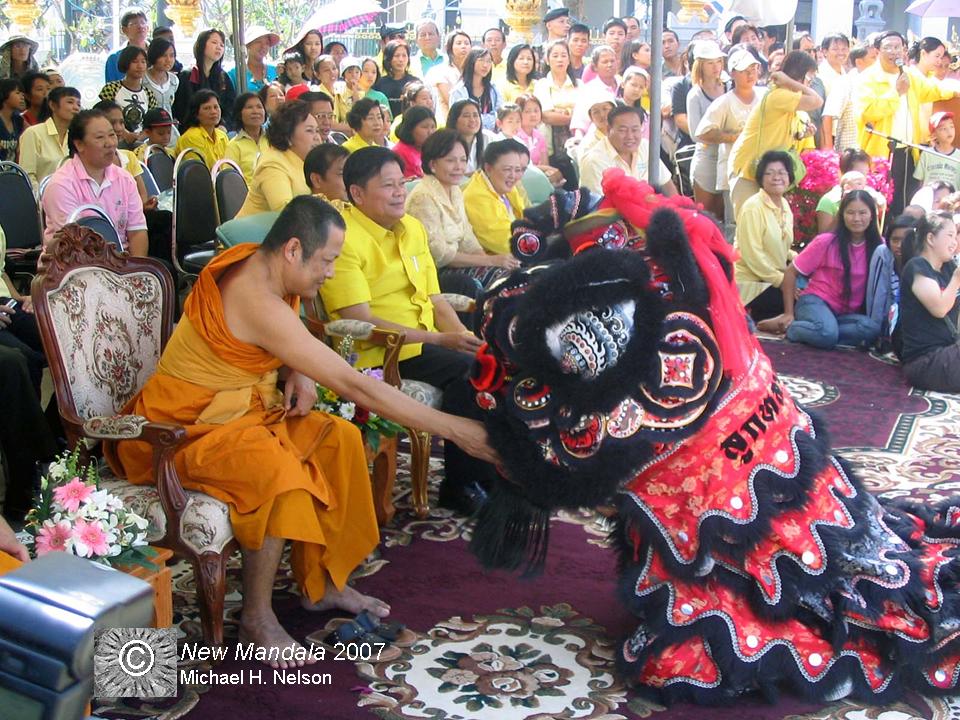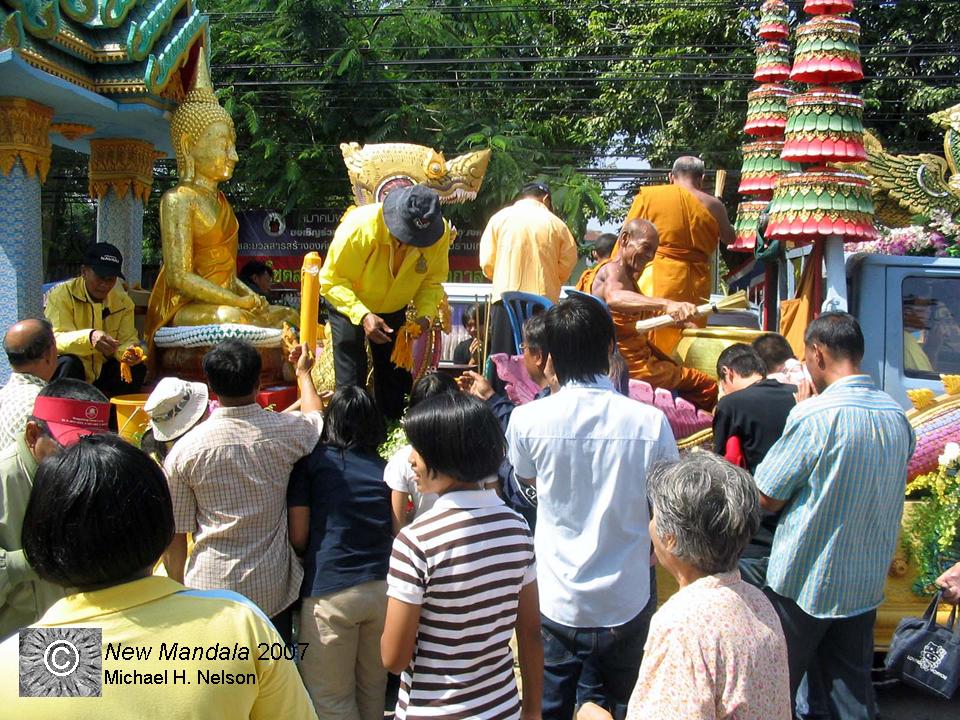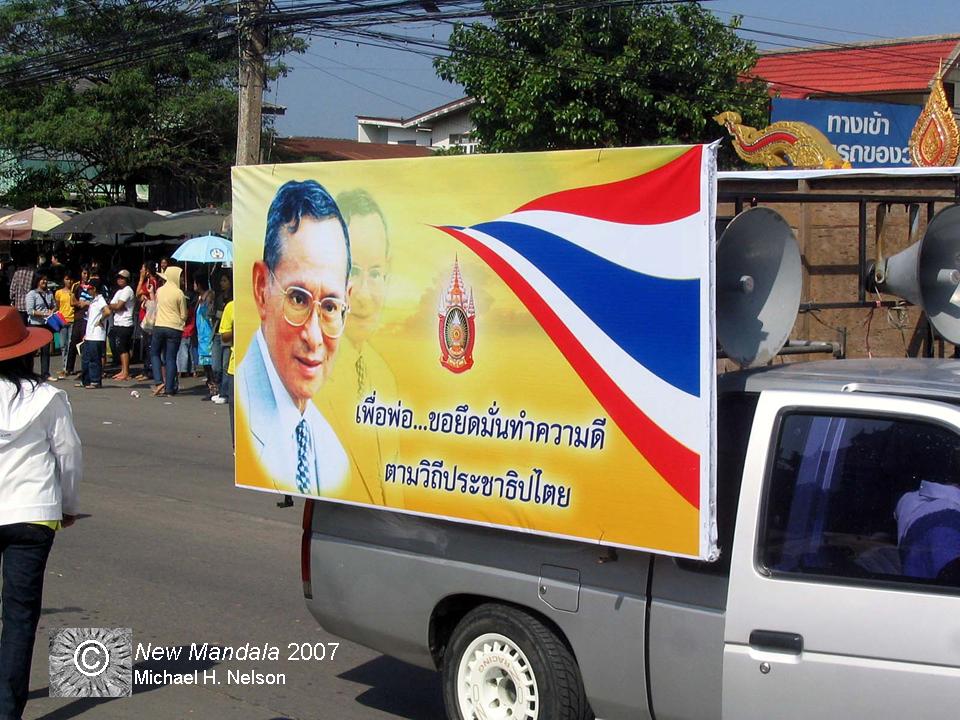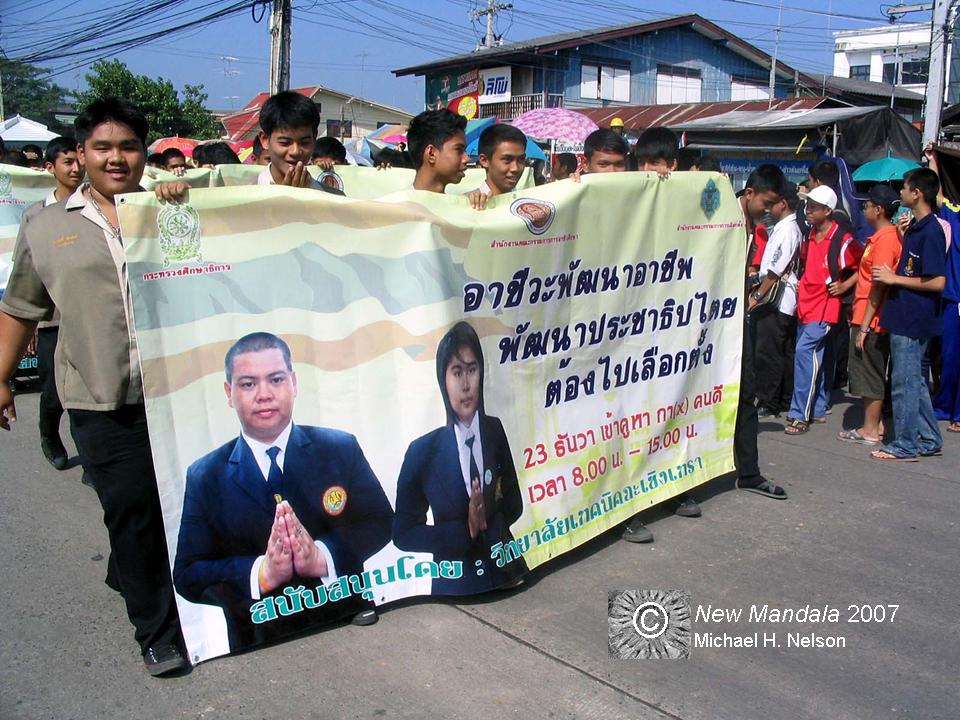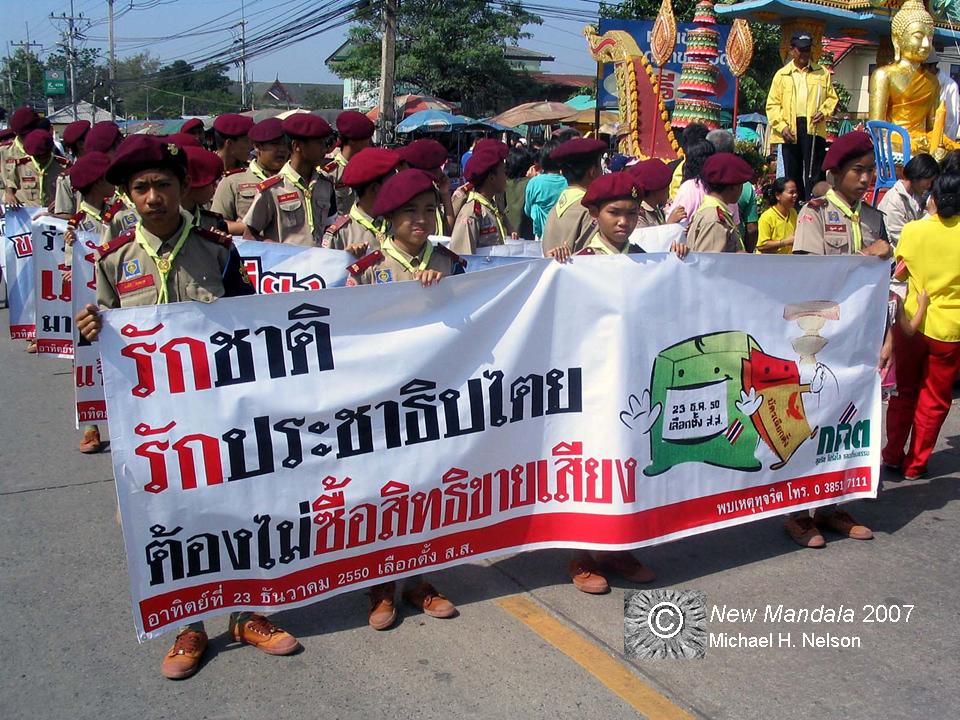Observers in Chachoengsao could be forgiven if they did not think that we are actually in the middle of a vigorously fought election campaign to fill the House of Representatives and put a post-coup “democratically elected” government in place. While the national-level newspapers do substantially report on election-related matters, the physical public sphere in Chachoengsao provides very few clues to the voters that election day is merely a month away. In Chachoengsao municipality, there are so far neither any campaign posters nor banners and only a handful of small billboards advertising Wuthipong and Thitima Chaisaeng at places designated by the municipality for campaign purposes. A few pick-up trucks converted to campaign vehicles roam the province playing their jingles in support of a number of candidates and political parties. Candidates also campaign by distributing their small introductory campaign cards. However, the overall public appearance is so quiet that a number of commentators already anticipate a drop in turnout, although the provincial election commission has set 73 percent as its target (turnout was 68.7 percent in 2001, 76.4 percent in 2005, 62.5 percent in the Senate election of 2006, and 57.1 percent in the referendum).
While the political sphere has been rather subdued, the state mechanism had a good opportunity to push its bureaucratic-royalist model of politics. It did so on the occasion of the combined opening of Wat Sothorn’s Praphuttasothorn fair and the start of the Red Cross fair (both are annual events). This opening took place on November 21 in front of Wat Sothorn’s new Uposatha hall (built at a sufficiently modest two billion baht), near to where the MP candidates had made their oaths reported about in my third post on New Mandala. The event lasted for more than four hours and turned out to be designed as a celebration of the conservative trinity of “Nation, Religion, Monarchy,” with a strong emphasis on celebrating King Bhumiphol Adulyadej, his greatness, wisdom, and compassion for his subjects. The event was opened by the provincial governor, who then–together with a head monk from Wat Sothorn and a big audience–watched 17 delegations of students, mostly from state schools, but also from three private Christian institutes, and even one from the Big C super center, parading their marching bands and delivering performances. Even hardcore fans might have gotten a little bit bored by a dozen or so renderings of the song “pho khong phaen din” (the father of the country), which has been strongly promoted as the official composition celebrating the King’s 80th birthday anniversary. On one occasion, I was standing next to the crowed when the song was played again. A women dressed in a yellow polo shirt loudly sang the song along and animated the audience to do so as well, shouting, “Do it for the nation!”
Anyway, I pitied the school children who had to get up at about four o’clock during the night to prepare their elaborate and often luxurious costumes, including putting on lots of make-up, to make it in time for the beginning of the ceremony at around seven o’clock. Clearly, great amounts of money and time had been invested by the schools in order to train and dress the kids for this event. It lasted until after noon, with the groups marching from Wat Sothorn all the way to the old market in Chachoengsao town. This was certainly a great moment in the students’ lives, with parents, siblings, and relatives coming to watch them perform in front of the highest religious and state authorities of the province (none of the MP candidates was in the audience). Yet, one wonders what kind of lessons they will have learned from their preparations and the messages promoted on that day. Picture 2 shows schoolchildren representing “Nation, Religion, Monarchy” in the original sequence.
Picture 2
However, since this event mainly aimed at celebrating the King, he would mostly be placed ahead of “Nation” and “Religion” (picture 3).
Picture 3
Benjamas 2 school (picture 1) had the strongest royalist message in its performance, and it was partly even communicated in English. This state school has, on the same premises, established a two-class system, in which the children of wealthy parents are taught in small classes and air-conditioned rooms by foreigners in English, while the children of parents unable to afford the high tuition fees of the “international program” have to be content with the usual Thai school environment. One does not really have to be in much doubt about what the students in each of these segregated sections will learn from this arrangement. Another question concerns the fact that the state must constitutionally provide free education for all until a certain age, and is not permitted to discriminate against people on the basis of different economic means. Of course, “sufficiency economy” was mentioned from time to time by the moderators, although the whole event was rather extravagant–a far cry from SE’s principle of moderation.
Picture 4 shows a tuk tuk converted into a vehicle promoting SE.
The message says that following the middle path will lead to balanced, stable, and sustainable progress. As pictures 5, 6 and 7 demonstrate, a more fancy and colorful approach was more in line with the general atmosphere of the event than dull and grey moderation.
Picture 6
Picture 7
A lion dance group added some Chinese flavor, and some acrobatics, as shown in picture 8.
After their performance, the lions and the kids from the acrobatics group went to where the important guys were sitting to ask for rewards. They received them in the form of 100 baht notes, which had been prepared in advance. The provincial governor had a white envelope for this purpose. Picture 9 shows a “lion” being given his reward from the presiding monk.
Picture 9
On his right-hand side is the governor. In the upper right-hand corner is one of the two moderators with the microphone. At this point, he had variously felt the need to ask the participating groups to speed up their acts, because the performances had been going on for longer than expected already. The governor patiently remained seated during almost the entire ceremony, which the audience (picture 10) obviously enjoyed.
Picture 10
In the parade procession, there was a car of particular religious-animistic importance (picture 11). Many people flocked to receive yellow holy threads and be sprinkled by a monk with holy water. Some even brought small buckets or bottles with them to have them filled with the holy water.
Picture 11
The current election period was reflected by one group of technical college students who carried a banner in support of the election (picture 12). The text reads, “Vocational education develops the professions. To develop democracy, you must go and vote in the election.” Thus, a connection was made between the election and a democratic system of governance.
Picture 12
On the other hand, Benjamas 2 school put a royalist spin on democracy (picture 13). This text reads, “For our father…Let’s adhere to doing good deeds according to the way of democracy.” It is not really that clear what good deeds have to do with a democratic way of life, and what the latter prescribes in terms of those good actions. Moreover, it seems that democratic principles are deemed insufficient to lead to whatever actions may be thought to be good.
Picture 13
Rather, such actions are cast in a father-children frame of reference, asking people to do good as some sort of paying respect to the King, or of making the “father of the country” proud of his kids. One wonders what sort of civic education is taught on the basis of this sort of political culture. As mentioned above, the school has established a two-class system. So, equality or egalitarianism do not seem to be important elements of a democratic way of life that might make the King proud. But, then, one should probably not read too much into this brief text. It might merely reflect the widespread practice in Thai official circles to come up with some lines of words that sound nice, without actually being connected to any concrete ideas or required actions. In a different ceremonial context, one could easily imagine that the picture of the King in the foreground would be replaced by the symbol of the constitution, while the background would be provided by a picture of the democracy monument.
Finally, the provincial election commission had also brought its cause to the procession via a group of students dressed in boy scout uniforms and carrying a number of ECT-produced banners on the election (picture 14). The text says, “If you love your country, love democracy, then you must not buy or sell votes.”
Picture 14
This slogan is reminiscent of the one used in the anti-vote buying campaign after the coup of 1991. At that time, the main slogan was, “Selling your vote, selling your right is like selling your life, selling the nation.” Again, democracy alone is deemed insufficient to convince MP candidates and voters that they should refrain from some sort of actions. But this time it is not the peoples’ love for the King that should motivate them. Rather, they should act in the required way out of their love for the country. Thus, in one instance we have the “Nation” element of the trinity that should lead to clean elections, while in the other case the element of “Monarchy” is supposed to do the trick in a broader sense. Trust into the civic nature of politics in a democracy, it seems, is in short supply, perhaps for some reason.
 Facebook
Facebook  Twitter
Twitter  Soundcloud
Soundcloud  Youtube
Youtube  Rss
Rss 